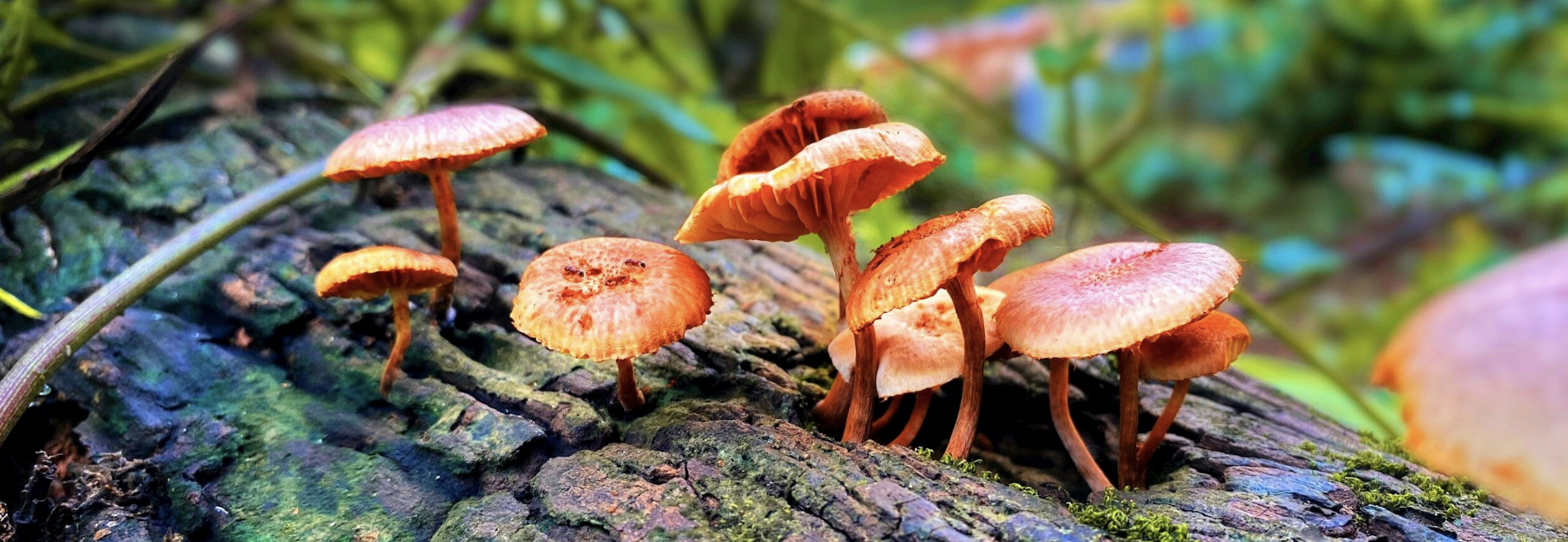Benefits of Psilocybin Assisted Therapy
Written by Christina Collins, PhD, and originally posted on Soul Speak Psychotherapy.
What is the “magic” in magic mushrooms?
Psilocybin is a psychoactive compound found in certain mushrooms, often called “magic mushrooms.” There is growing interest in its potential therapeutic benefits, including its impact on the brains neuroplasticity. Emerging research indicates that psilocybin enhances the brains connectivity, which supports the establishment of new neural pathways. Such pathways allow for different regions of the brain to communicate more effectively, yielding greater adaptability and flexibility of thought.
Psilocybin can reduce activity in "default mode”
A major therapeutic benefit of psilocybin lies in its ability to reduce activity in the brains “default mode,” a neural network associated with a persons long held beliefs and assumptions as well as their sense of self. Think of “default mode” as the brains “autopilot” or the habitual ways of learning, over a life time, to move and respond to our inner and outer life. While default mode helps the brain navigate the environment without using many resources or requiring awareness and intention, it also is a brain function that establishes negative patterns, thoughts and feelings. Such patterns are often the cause of distress in our lives. Research suggests that balancing this neural network might open up the brain to new perspectives and ways of thinking about self, others, and the world, that support thriving in life rather than surviving.
Combining Psilocybin with Psychotherapy is Powerful
Reduction of activity in “default mode” is one of the reasons that combining psilocybin with psychotherapy is so powerful. Whether using psilocybin in smaller therapeutic (micro) doses or in larger “heroic” doses the medicine supports individuals to soften their attachments to old memories, ways of thinking, or feelings of being stuck. Letting go of such long held patterns opens individuals up to new insights about self that can inspire new patterns of perceiving and being in the world. Some studies have suggested that such positive effects, when administered in a therapeutic setting, can help individuals work through certain mental dysfunctions, such as depression, anxiety, trauma, and others.
Harm Reduction Therapeutic Services
Many practitioners in Colorado are offering harm reduction therapeutic services to individuals engaged in the personal use of natural medicines, such as psilocybin. While personal use for self healing has been legalized in Colorado, Oregon, and California, there remains a big difference between having a recreational experience versus a guided one. Creating a safe experience is one of the most essential steps in setting up a psychedelic experience whether by oneself or with a guide. However, therapeutically guided sessions have the added benefit of facilitating healing by helping one address deeper problems, patterns, concerns, and experiences that can be hard to notice or address by oneself. Additionally, guided journeys begin with preparation sessions before hand, and continue with integration sessions after the experience has ended. Having this type of support can be instrumental in the outcome of a journey.
Assess if Psilocybin is a “Good Fit”
Research notes that psilocybin is generally very safe for many people when administered in an intentional, controlled setting. Research also notes that it can be unsafe for people when using certain pharmacological medicines. Part of the therapeutic preparation process is to assess a persons “goodness of fit” for using psilocybin, as it is not for everyone. Depending on the dose of medicine, psilocybin’s psychedelic effects can be quite intense and often insights from an experience with it will arise after taking the medicine, during the integration process.
A Guide can be Instrumental to a Positive Experience
A positive of psilocybin use is it’s quite powerful and lengthy duration, which is where much of the deep transformative work occurs. The negative is similar, just how powerful and long the experience is. Participants often experience disorienting feelings or a sense of losing control and agency while taking psilocybin. Having therapeutic support during a journey can guide participants through such physical and psychological discomfort. This is why a guide can can be instrumental in supporting and steering the experience in a healthy way.
For links to cutting edge psychedelic research go to https://hopkinspsychedelic.org/
For more links about psychedelic treatment go to https://maps.org/

